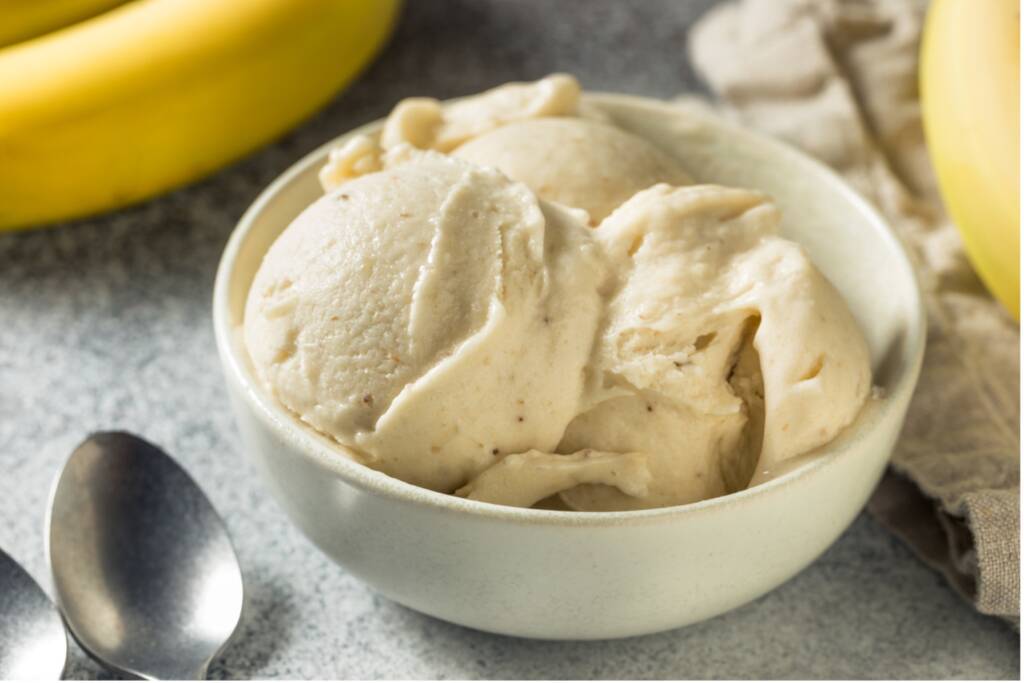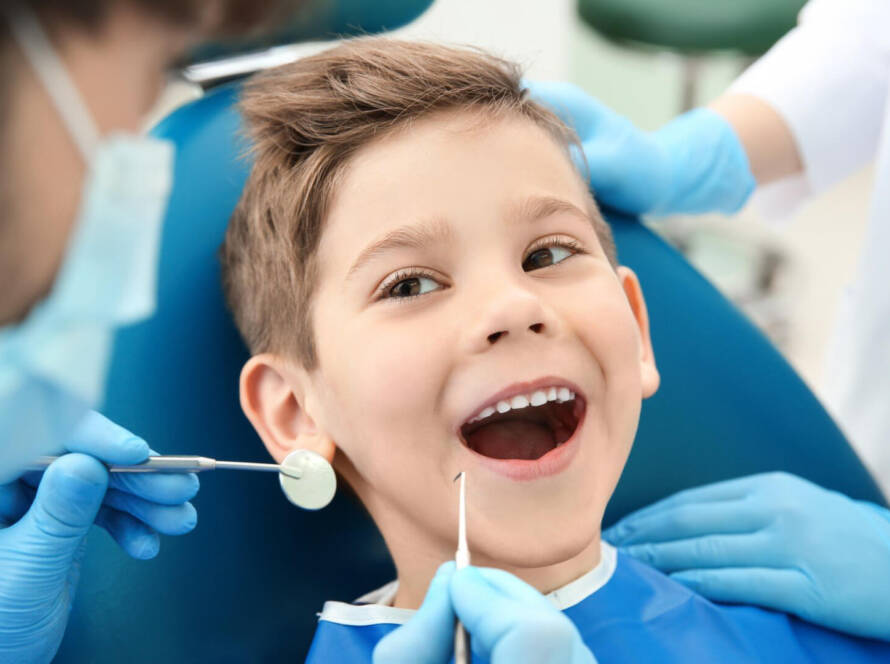Brace yourself for the bittersweet truth about sugar and its impact on dental health and braces. In this article, we’ll delve into the effects of sugar on your teeth, the specific challenges it presents for those wearing braces, and steps you can take to protect your smile. Read on to find out why sugar is always the bad guy in the story and why it is so important to cut down on sugar if you want healthy teeth, especially when wearing braces. And don’t miss the delicious tooth-friendly recipes at the end!
What is considered too much sugar?
We all know that too much sugar is not a good thing. But how much is too much?
- The US dietary guidelines advise people to limit their intake to less than 10% of their daily calorie intake. For a person eating 2,000 calories per day, this would equal 50 grams of sugar.
- Children aged 7 to 10 should have no more than 24g of free sugars a day.
- Children aged 4 to 6 should have no more than 19g of free sugars a day.
Now let’s look at an example of sugar a child might consume in one day:
1 serving of Fruit Loops = 12g, 8 oz glass of orange juice = 21g, 1 coke = 39g, 1 Gogurt = 10g, a Cliff bar = 22g, Dessert, 1 serving of ice cream = 20g or more.
Total grams of sugar consumed in one day – a whopping 124!
How sugar affects dental health
Sugar is a major culprit when it comes to tooth decay. When you consume sugary foods and drinks, the bacteria in your mouth break down the sugar into acid. The acid gradually erodes your enamel, the protective layer of your teeth. Over time, this can lead to tooth decay and cavities.
But it’s not just the amount of sugar you consume that matters, it’s also the frequency. Frequent snacking or sipping sugary drinks throughout the day exposes your teeth to a constant acid attack, increasing the risk of tooth decay. It’s important to be mindful of your sugar intake and make efforts to reduce it for the sake of your dental health.
Consuming excessive amounts of sugar can also lead to gum disease. The bacteria in your mouth thrive on sugars, and when they multiply, they can cause inflammation and infection in your gums. This can lead to gum disease, which can cause gum recession, tooth loss, and other serious dental issues if left untreated.
The connection between eating sugar and braces
For individuals with braces, sugar becomes a bigger problem. The brackets and wires of braces create additional nooks and crannies where bacteria can thrive, making proper oral hygiene all the more crucial. When you have braces, it’s important to pay extra attention to your dental care routine and avoid foods and drinks that can harm your teeth and braces.
It’s also worth noting that excessive sugar consumption can lead to tooth staining, which can be particularly noticeable when you have braces. The brackets can make it more difficult to clean and remove stains, leading to discoloration and an unsightly smile. By reducing your sugar intake, you can minimize the risk of staining and maintain a brighter smile throughout your orthodontic treatment. It’s not a pretty picture, but see below an example of what can happen when someone with braces eats too much sugar and doesn’t do proper oral hygiene:
Tips for reducing sugar intake while wearing braces.
Reducing sugar intake is essential for maintaining good dental health, especially when wearing braces. Here are some tips to help you cut down on sugar and protect your teeth and braces:
- Opt for water: As you can see from the above example, sugary drinks, including soda, fruit juices, and sports drinks, are major culprits when it comes to tooth decay. Instead, reach for water as your go-to beverage. Not only does it quench your thirst without any added sugars, but it also helps keep you hydrated and washes away food particles and bacteria from your mouth.
- Be mindful of hidden sugars: Sugar can be found in surprising places, such as in processed foods, condiments, breakfast cereals, energy drinks, some yogurts, and even protein bars. Read food labels carefully and choose low-sugar alternatives whenever possible.
- Reach for healthier snacks such as fresh fruits, vegetables, and nuts. These options not only provide essential nutrients but also help stimulate saliva production, which helps protect your teeth against decay.
Foods and drinks to avoid for better dental health.
Certain foods and drinks can be harmful to your dental health, especially for those wearing braces. Here are some examples of what to avoid:
- Sticky and chewy foods: These foods can get stuck in your teeth or braces and be difficult to remove. Examples include caramel, taffy, chewing gum, and sticky candies. Opt for softer alternatives that are easier to clean from your teeth, brackets and wires such as chocolate.
- Hard and crunchy foods: These foods can potentially damage your braces or cause brackets to break. Examples include hard candies, popcorn, and ice. If you wear braces you want to avoid nuts. Eat nut butters instead.
- Sugary beverages: Soda, fruit juices, energy drinks, and sweetened teas can all contribute to tooth decay. Avoid these sugary drinks and opt for water, unsweetened, herbal tea, or milk instead.
- Acidic foods and drinks: Acidic foods and drinks can erode your enamel and increase the risk of tooth decay. Examples include citrus fruits, tomatoes, vinegar, carbonated drinks, and wine. While these can still be consumed in moderation, it’s important to rinse your mouth with water afterward to neutralize the acid.
Dental hygiene tips for maintaining oral health with braces.
Proper dental hygiene is crucial as it helps prevent tooth decay, gum disease, and other dental issues. Here are some essential dental hygiene tips to follow:
- Brush your teeth thoroughly: Use a soft-bristle toothbrush and fluoride toothpaste to brush your teeth at least twice a day. If you have braces, pay special attention to cleaning around each bracket and wire, using gentle circular motions. Brushing should take at least two minutes to ensure thorough cleaning.
- Floss daily: Gently slide the floss up and down between each tooth, making sure to reach the gumline. This helps remove plaque and food particles that brushing alone may not reach.
- Use an interdental brush for braces: An interdental brush can be helpful for cleaning hard-to-reach areas around braces. Insert the brush between the wires and gently clean around each bracket, removing any trapped food or plaque.
Foods that promote healthy teeth.
There are plenty of alternatives to sugary treats that are satisfying. Here are some ideas:
- Fresh fruits: Enjoy a variety of fresh fruits, such as apples, pears, and berries. These provide natural sweetness and are packed with vitamins and minerals that are beneficial for your dental health. If you wear braces, slice your apple into bite-sized pieces to avoid damaging your braces.
- Vegetables: Snack on vegetables like cut carrots, cucumbers, and celery. Not only are these low in sugar, but they also help stimulate saliva production, which helps protect your teeth against decay.
- Cheese and yogurt: Dairy products like cheese and yogurt are not only delicious but also beneficial for your dental health. They contain calcium and phosphates that help strengthen your teeth and neutralize acids in your mouth. But remember, stay clear of yogurts high in sugar. Opt for yogurts with 10g or less sugar.
- Nuts and seeds: Choose unsweetened nuts and seeds for a healthy snack. Almonds, walnuts, and pumpkin seeds or unsweetened nut butters are excellent choices that provide essential nutrients without the added sugars.
- Water and herbal tea: Stay hydrated with water and herbal teas instead of sugary drinks. Add a slice of lemon or a sprig of mint to your water for a refreshing twist.
Satisfy Your Sweet Tooth without Sugar!
Got a sweet tooth? Don’t fret. There are many delicious recipes for desserts you can make without adding sugar. Here are a few ideas to get you started:
Frozen Banana Ice Cream from The Kitchen
Oat Bars & Cookies from Healthy Little Foodies
Frozen Fruit Kabobs from Super Healthy Kids
Best Chocolate Fudge from All Around the Table
Simple Strawberry Smoothie from Cookie and Kate
Chocolate Hazelnut Nice Cream from Dr. Fuhrman
Conclusion: The importance of making smart choices for dental health and braces.
The impact of sugar on dental health cannot be overstated, especially for those wearing braces. Sugar consumption can lead to tooth decay, gum disease, staining, and other dental issues. With braces, the risk is even higher due to the additional surfaces where bacteria can thrive.
By cutting down on sugary foods and drinks, practicing consistent oral hygiene, and visiting Embrace Family Smiles regularly, you can minimize the negative impact of sugar on your family’s dental health. Contact us today and schedule appointments for the whole family!
Happy New Year!





